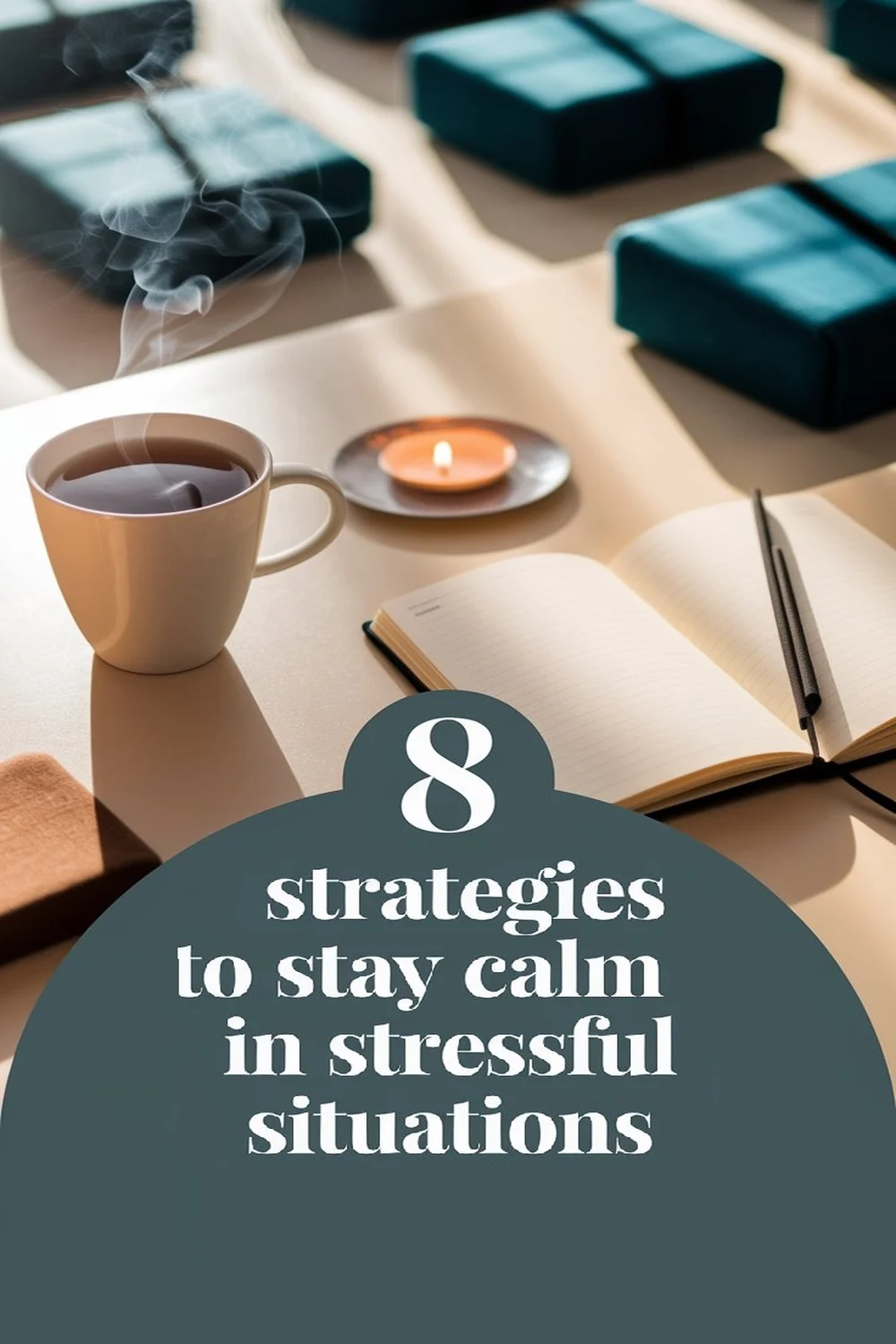When stress hits, try these eight strategies to stay calm: practice mindful breathing to lower cortisol, focus on the present to reduce anxiety, and develop a positive mindset by challenging negative thoughts. Effective time management keeps you organized, while regular breaks recharge your mind. Don’t forget to engage in physical activity, foster supportive connections, and seek professional help when you need it. There’s more to discover about mastering your calm in these challenging moments.
Practice Mindful Breathing
Although stressful situations can feel overwhelming, practicing mindful breathing can help you regain control and find your center. When you focus on your breath, you activate your body’s relaxation response, which can lower your heart rate and reduce anxiety. Start by inhaling deeply through your nose for four counts, holding for a moment, and exhaling gently through your mouth for six counts. Research shows that this technique can considerably decrease cortisol levels, the hormone linked to stress. By encouraging full, deep breaths, you’re telling your body it’s safe to relax. Try to practice this breathing exercise daily or whenever you feel stress creeping in. It’s a simple yet powerful tool that can ground you, helping you face challenges with a clearer mind.
Focus on the Present Moment
Practicing mindful breathing sets the stage for another powerful strategy: focusing on the present moment. When you shift your attention away from worries about the future or regrets from the past, you can greatly reduce your stress. Engaging fully with your surroundings—whether it’s feeling the texture of an object, listening to sounds around you, or noticing the rhythm of your breath—brings clarity. Research shows that being present can lower anxiety and improve emotional regulation. This isn’t about ignoring your feelings; it’s about recognizing them without judgment. When you stay grounded in the now, you empower yourself to respond thoughtfully to challenges, rather than reacting impulsively. Embrace the present moment and watch your stress begin to dissipate.
Recommended Items
Here are our recommended health and wellness essentials—feel free to explore!
Develop a Positive Mindset
When you cultivate a positive mindset, you pave the way for resilience in the face of stress. Embracing positivity doesn’t mean ignoring problems; it means acknowledging them while choosing to focus on solutions. Here are a few strategies to help you develop that positive outlook:
- Practice Gratitude: Regularly reflect on what you’re thankful for to shift your focus away from negativity.
- Challenge Negative Thoughts: When a negative thought arises, question its validity and replace it with a constructive one.
- Surround Yourself with Positivity: Engage with uplifting people and content that inspires and energizes you.
Utilize Time Management Techniques
Effective time management can markedly reduce stress and enhance your ability to cope with demanding situations. By prioritizing tasks, you can focus on what truly matters. Start each day by listing your top three priorities, helping you maintain clarity. Break larger projects into smaller, manageable tasks to prevent feeling overwhelmed. Utilize techniques like the Pomodoro Technique, where you work for 25 minutes and then take a 5-minute break; this can boost your focus while managing your time effectively. Setting specific deadlines for tasks creates a sense of urgency, keeping procrastination at bay. Finally, learn to say no when your plate’s already full—it’s essential for maintaining balance. Implementing these strategies can transform your approach to stress and enhance your productivity.
Take Breaks and Rest
Taking regular breaks is essential for maintaining your mental well-being, especially during stressful times. When you allow yourself moments of rest, you recharge both mentally and physically. This can lead to increased focus and productivity when you return to your tasks. Here are a few effective ways to incorporate breaks into your day:
- Set a timer: Work in intervals, like the Pomodoro technique, to remind yourself to take breaks.
- Change your environment: Step outside or move to a different room for a fresh perspective.
- Practice mindfulness: Use a few minutes to breathe deeply or meditate, which can help calm your mind.
Action Steps for Staying Calm
Engage in Physical Activity
Incorporating physical activity into your daily routine can greatly reduce stress and improve your mood, especially during overwhelming times. Whether it’s a brisk walk or an intense workout, moving your body releases endorphins that can lift your spirits. Here’s a quick look at how different activities can impact your stress levels:
| Activity | Duration | Stress Reduction Effect |
|---|---|---|
| Walking | 30 minutes | Moderate |
| Yoga | 1 hour | High |
| Running | 30 minutes | Very High |
| Dancing | 45 minutes | High |
Try to find what resonates with you. Regular exercise not only boosts your physical health but also equips you with a valuable tool for managing stress effectively.
Foster Supportive Connections
When you find yourself overwhelmed by stress, reaching out to others can be one of the most effective ways to regain your sense of balance. Building supportive connections enhances your resilience and boosts your mood. Surrounding yourself with trustworthy individuals can provide the comfort and encouragement you need during challenging times. Here are a few ways to foster those connections:
- Share Your Feelings: Express what you’re going through; vulnerability can deepen relationships.
- Engage in Meaningful Conversations: Discuss topics that matter to you and encourage others to do the same.
- Participate in Group Activities: Join clubs or hobby groups to connect with like-minded people.
These small efforts can cultivate a supportive network that helps you manage stress more effectively.
Seek Professional Help When Necessary
Although it might feel intimidating, seeking professional help can be an important step in managing stress effectively. When you’re overwhelmed, a mental health professional can provide you with tailored strategies and insights. Research shows that therapy reduces stress levels by improving coping skills and emotional regulation. You don’t have to face your challenges alone; professionals like psychologists or counselors are trained to help you navigate your feelings.
Consider reaching out if you’re struggling to cope with daily life or your stress feels unmanageable. Many professionals offer telehealth options, making it easier to get support. Remember, asking for help is a sign of strength, not weakness. Prioritizing your mental health is crucial for a balanced, fulfilling life.











